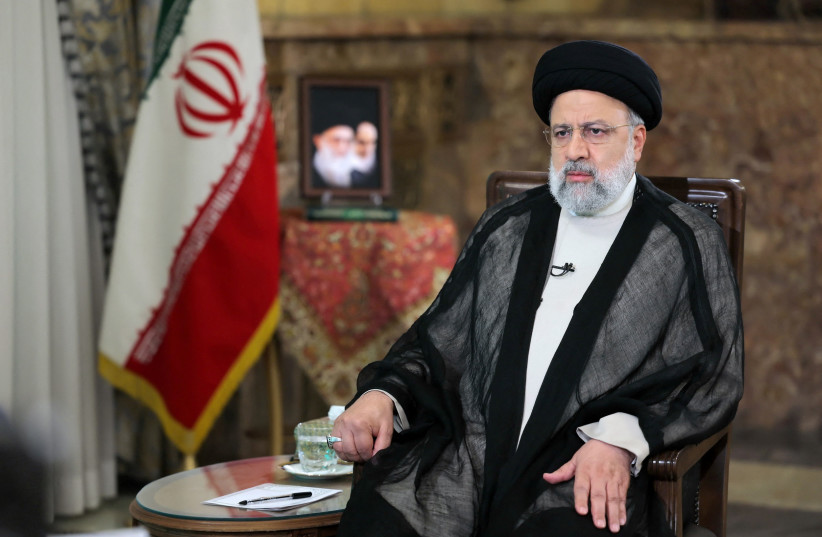With the fate of Raisi in question, his denial and hatred for Jews and Israel takes the spotlight
Iranian President Ebrahim Raisi’s provocative statements on the Holocaust and Israel have intensified global tensions and spotlighted the deep-seated rifts between Tehran and Jerusalem following his helicopter’s “hard landing” due to foggy conditions on Sunday.
The helicopter carrying Raisi was forced to land amid challenging weather and crashed in a forested area between the villages of PirDavood and Uzi in northwestern Iran. Over 40 rescue teams have been deployed in the search efforts.
Raisi’s comments during a September 19, 2022, CBS’s “60 Minutes” interview have particularly ignited backlash. He suggested that “There are some signs that [the Holocaust] happened, but further research needs to be done to investigate it,” a statement widely condemned as a form of Holocaust denial, especially sensitive given Israel’s role as a refuge for Holocaust survivors. “If a state shakes hands with the Zionist regime, then they are an accomplice to their crimes,” he declared in 2022.
The Iranian president’s rhetoric has not only revisited historical controversies but also heightened current geopolitical tensions. He has described Israel as a “false regime,” reaffirming Iran’s longstanding denial of Israel’s legitimacy. Adding to tensions, Raisi has made threats against major Israeli cities, including Tel Aviv and Haifa, linking their potential destruction to provocations on Holocaust Remembrance Day.
Raisi’s continuous denial of Israel
On resolving the Israeli-Palestinian conflict, Raisi has been clear in his intentions, stating, “The only solution is a Palestinian state from the river to the sea.'”

He has also remarked that the “Zionist regime’s crimes have crossed the redlines, which may force everyone to take action,” in reference to Israeli military actions in Gaza as of October 29.
The international response to Raisi’s comments has been swift and widespread. Israeli officials and key global Jewish organizations, such as the United States Holocaust Memorial Museum and the World Jewish Congress, have criticized his remarks as antisemitic, urging a strong international response to Iran’s leadership.
Lt. Gen. (Res.) Aviv Kohavi, former chief of staff of the Israeli army, highlighted the dangers of a regime distorting historical truths. During a visit to Auschwitz, he discussed the risks associated with such denials for global security, particularly concerning Iran’s nuclear ambitions.
On the topic of normalizing relations with Israel, Raisi stated, “Countries that seek to normalize relations with this cruel and criminal regime are ashamed before their nations today.” He further predicted in January 2024 that the Israel-Hamas conflict would lead to “Israel’s destruction.”





Comments are closed.